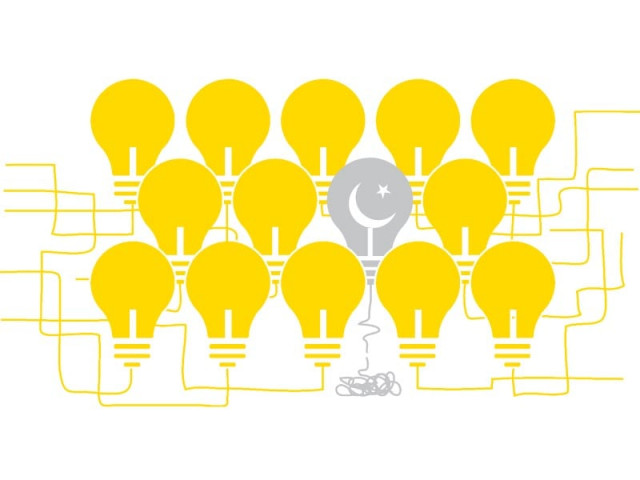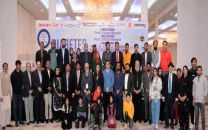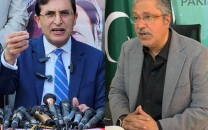Patent applications: Can we invent more than herbal crack cream?
There is no shortage of brains, just too much foreign competition.

The closest Pakistan has been to inventing something in the past few years has been a herbal crack cream, a solar-fired stove and some new pesticides. DESIGN: ANUSHAY FURQAN
Despite having a population of over 180 million people, thousands of factories and more than 85 engineering institutions, the closest Pakistan has been to inventing something in the past few years has been a herbal crack cream, a solar-fired stove and some new pesticides. None of these products made it to the stores.
Around 1,000 patents for new products and processes are registered in the country every year, but most of them are by foreign companies. Only 100 have been local.
“In my two decades, I don’t remember any company or individual who came up with a financially viable idea,” says Sabir Gul Khattak, who is the controller of patents and registrar of designs. “You’ll see some Pakistani names on the list but most of that is the result of thesis work being carried out at the universities.”
Experts say a host of reasons, including the absence of financial support, weak intellectual property rights protection and unfavourable government policies have contributed.
The private sector, for example, will not invest in new ideas when the manufacturing base is shrinking and industry faces multiple problems. “In the past six years, hundreds of factories have shut down,” explains the former chairman of the Higher Education Commission, Prof Dr Attaur Rahman. He holds up the case of the textile industry in Faisalabad, which has been crippled by power outages. The number of patents registered in a given country is closely linked to its economic growth. But local companies see little incentive in spending money on research and development especially as the free flow of information has made copying ideas convenient, Khattak said.
“Take the example of our pharmaceutical industry. We have asked the companies a million times to concentrate on making their own medicines but there is hardly any initiative.”
Entrepreneurs will take a risk but only when the industrial outlook is bright, Dr Rahman adds. “In our case there has been a lot of uncertainty. Even though there is a huge market for products, no one wants to risk the money. It’s better to import to feed demand.”
Dr Rahman insists, however, that a low number of patents doesn’t mean Pakistan lacks talent. He should know as he ran the government body that oversaw research in Pakistani universities. “We have got some of the most brilliant minds in the world,” he says. “[We] just need proper planning and policies to enable the creativity to make its mark.”
The multinational companies register patents with relevant Pakistani authorities as part of a global exercise that allows them exclusive rights to make and market their products for 20 years.
One success story is of Islamabad-based Amson Pharma, which got a patent for an anti-malaria drug in the face of competition from big multinationals that have an easier time bankrolling the research which involves millions of rupees, volunteers, testing and development.
The creator of the first Pakistani car, the Revo, has already had this experience. OJ Engineering CEO Feroz Khan, who was the brain behind the Adam Motors, now argues the need for venture capital funds, which can back small start-up companies. “Venture capitalists put money in, say 10 new firms,” he says. “Maybe nine of them will fail but that one surviving company then goes on to become Google or Microsoft.”
Published in The Express Tribune, February 17th, 2013.



















COMMENTS
Comments are moderated and generally will be posted if they are on-topic and not abusive.
For more information, please see our Comments FAQ